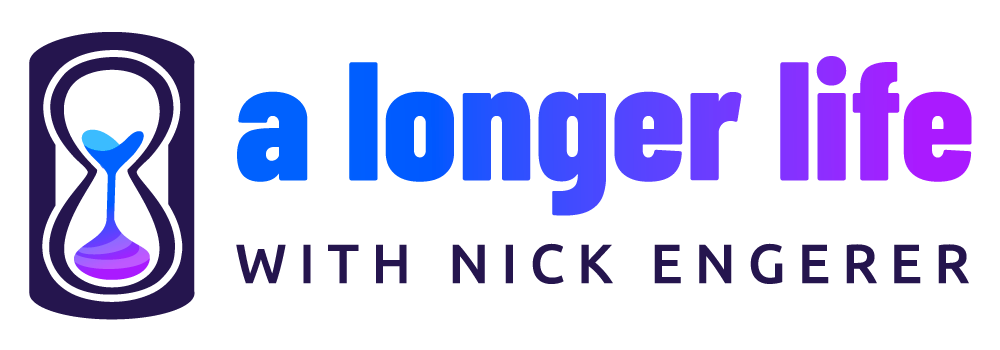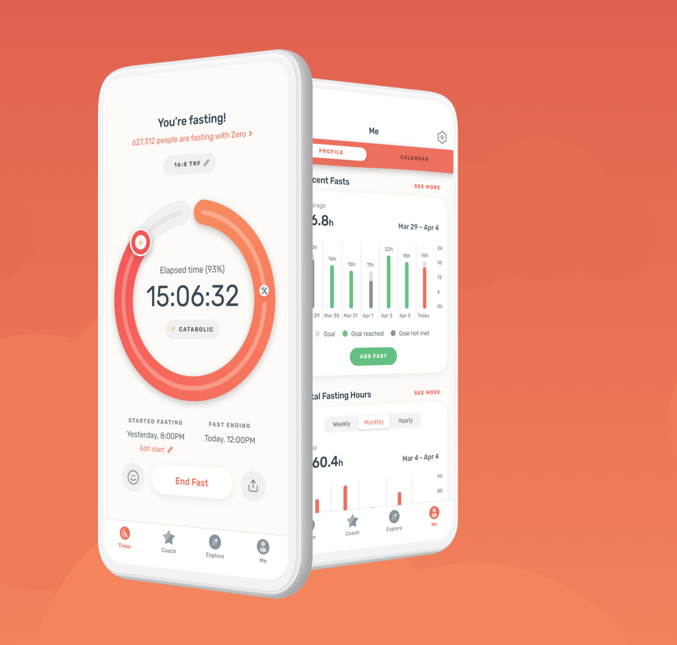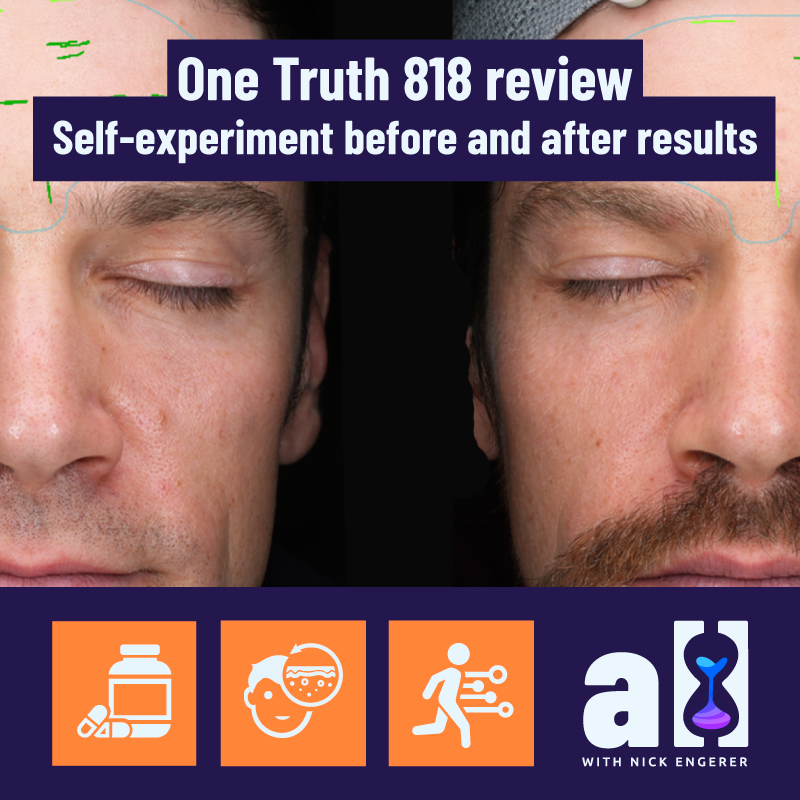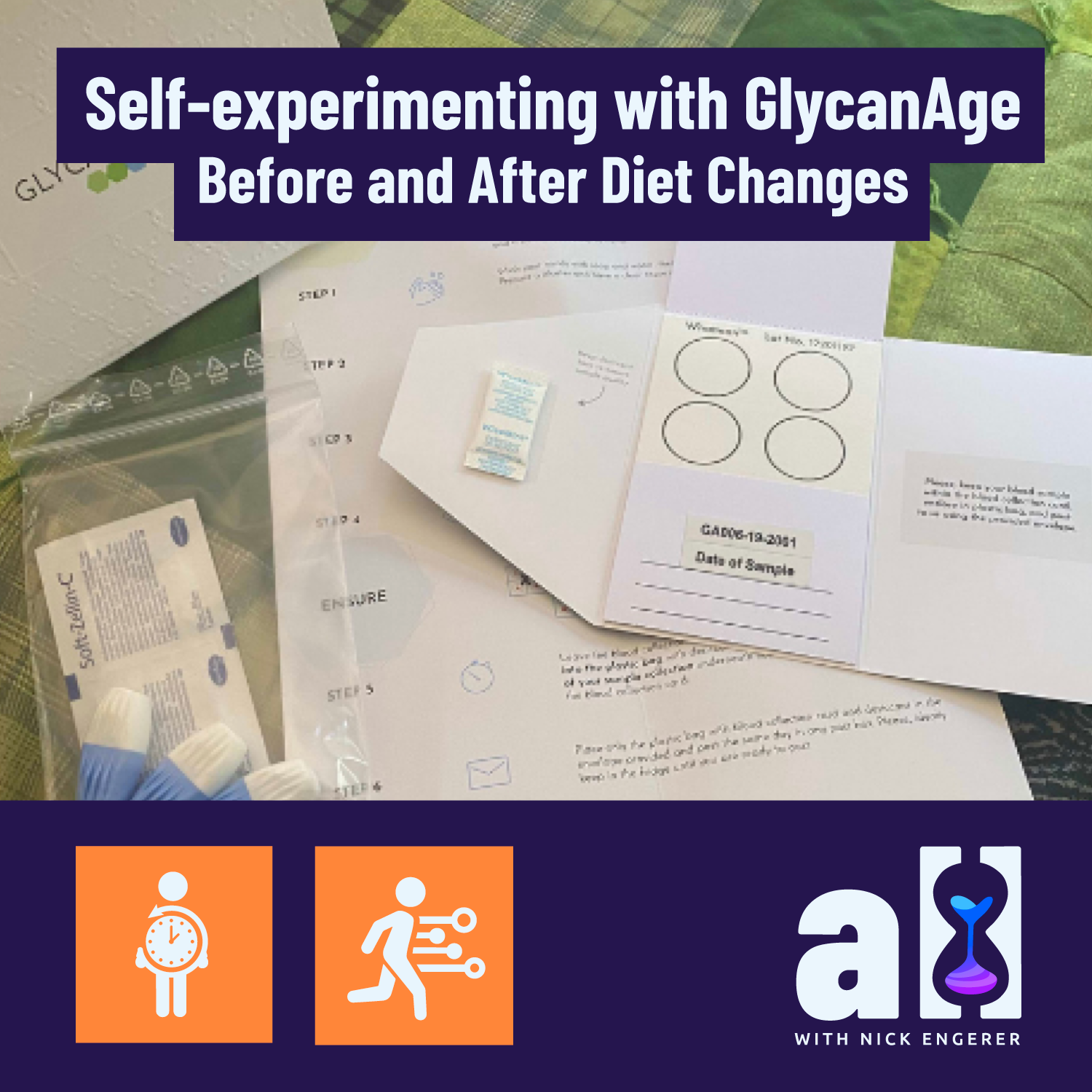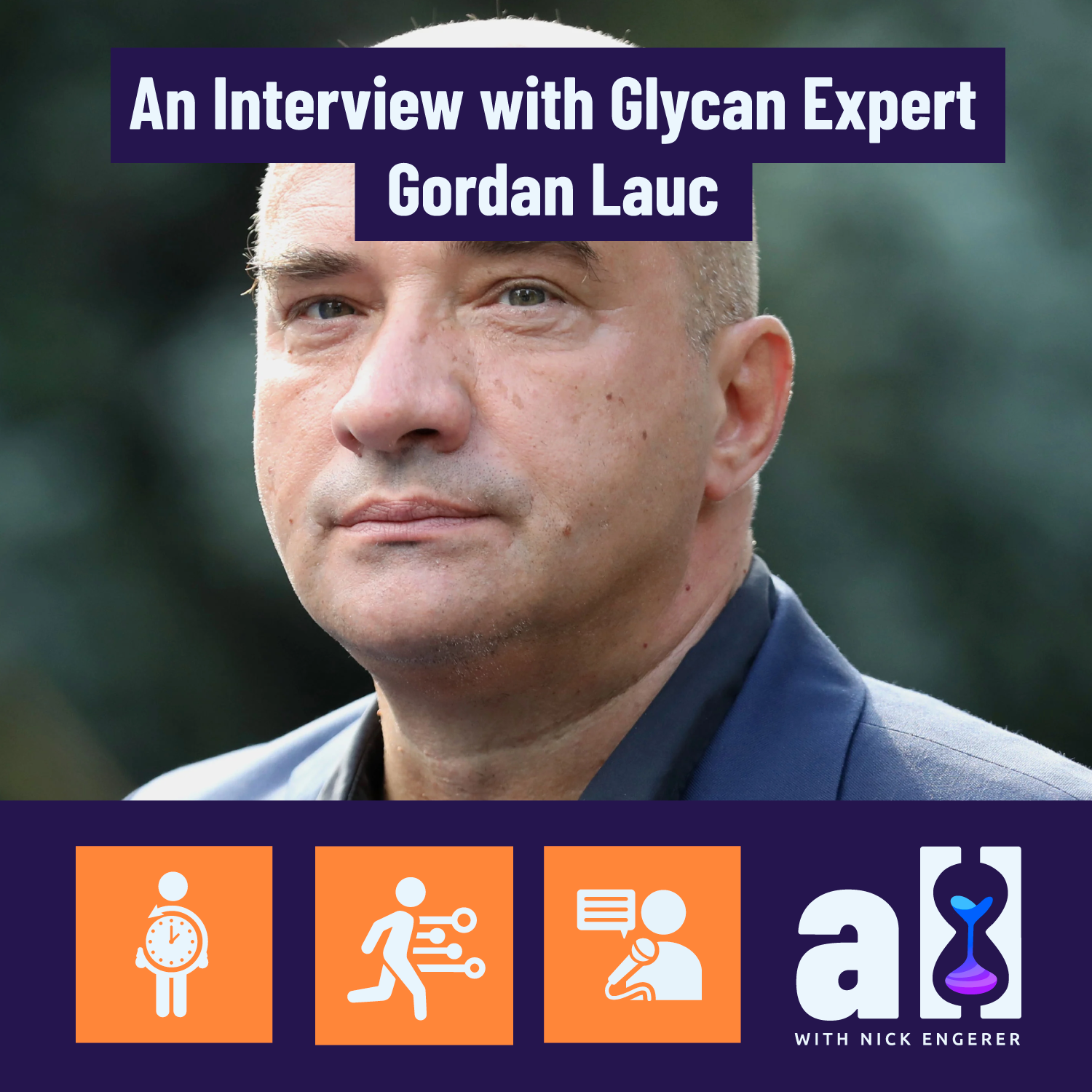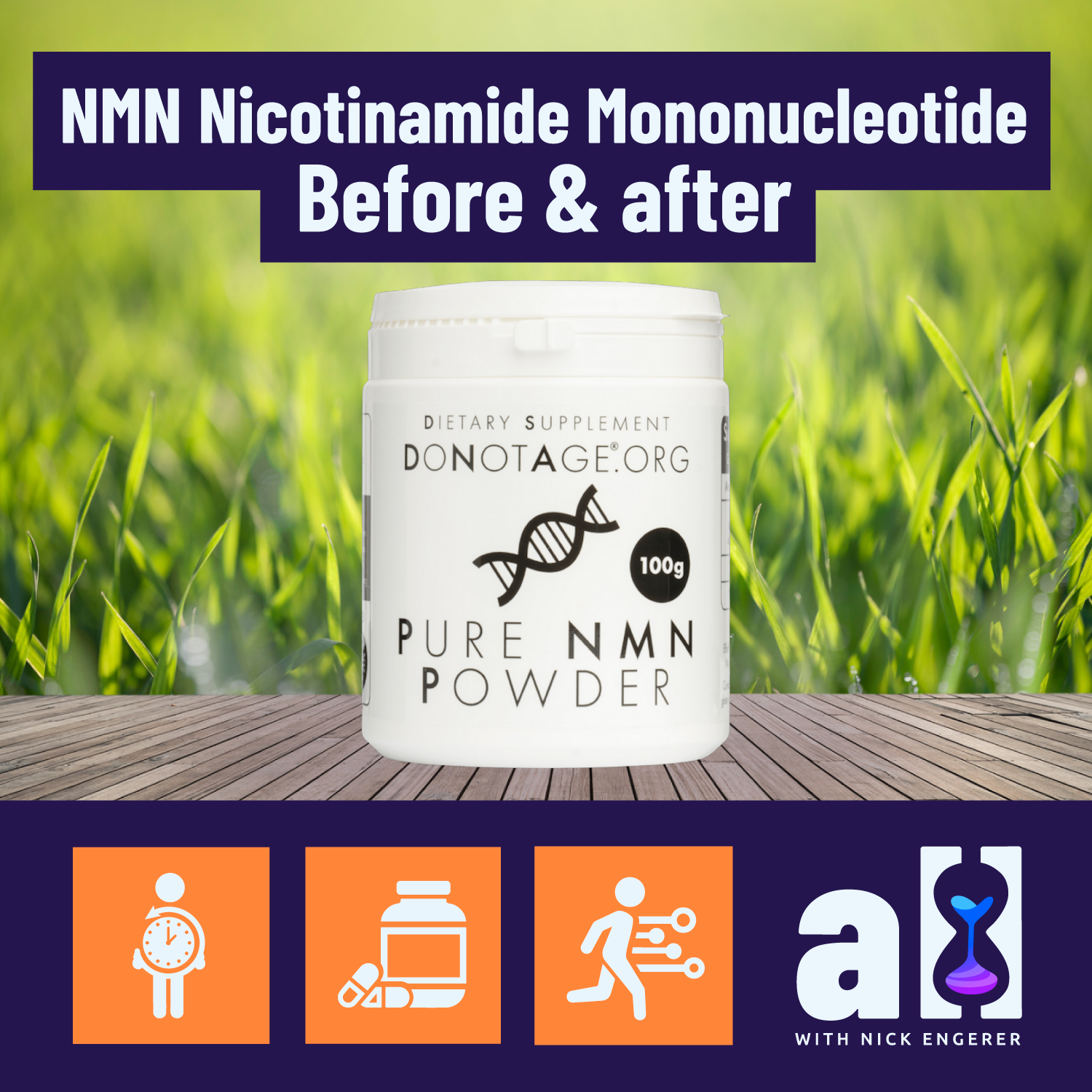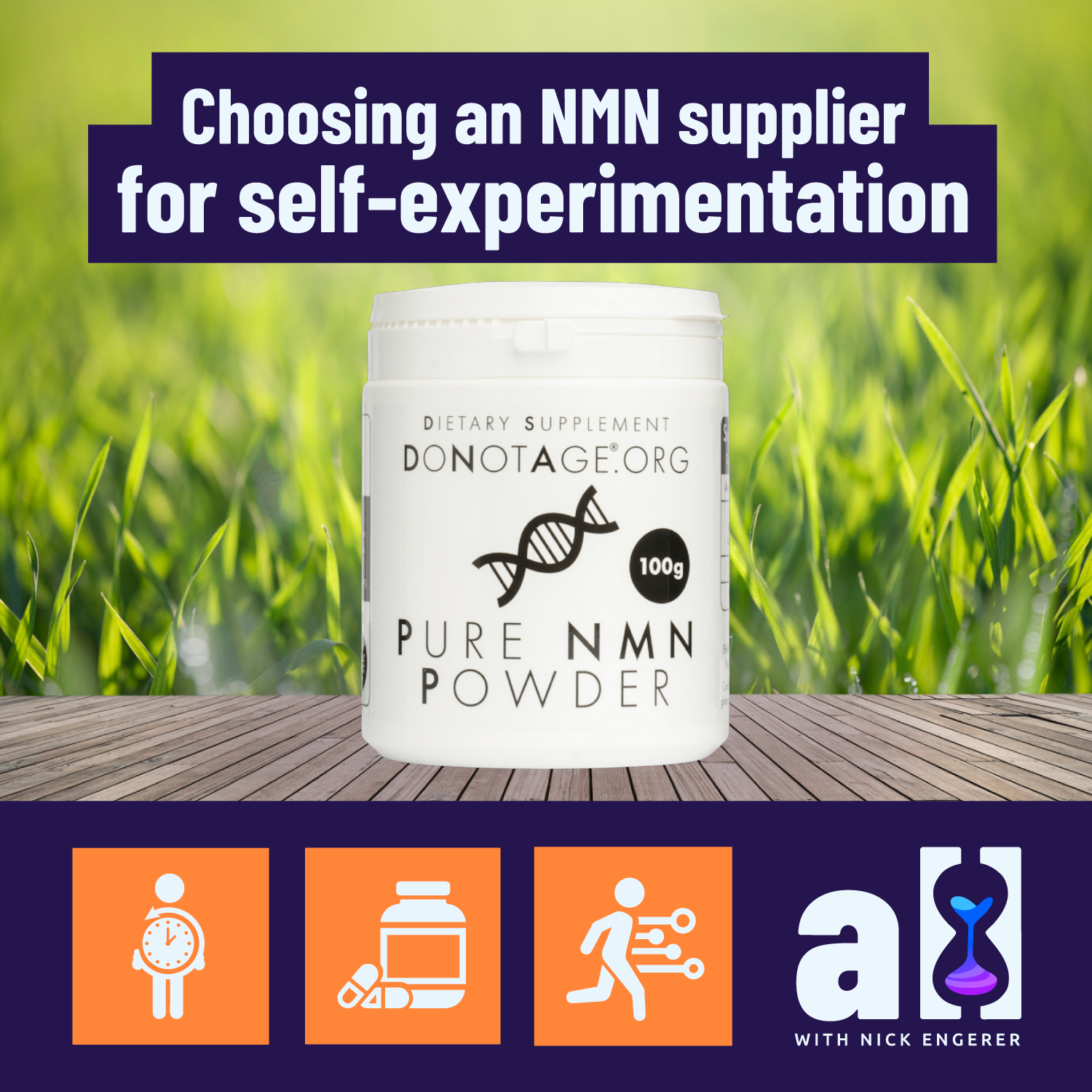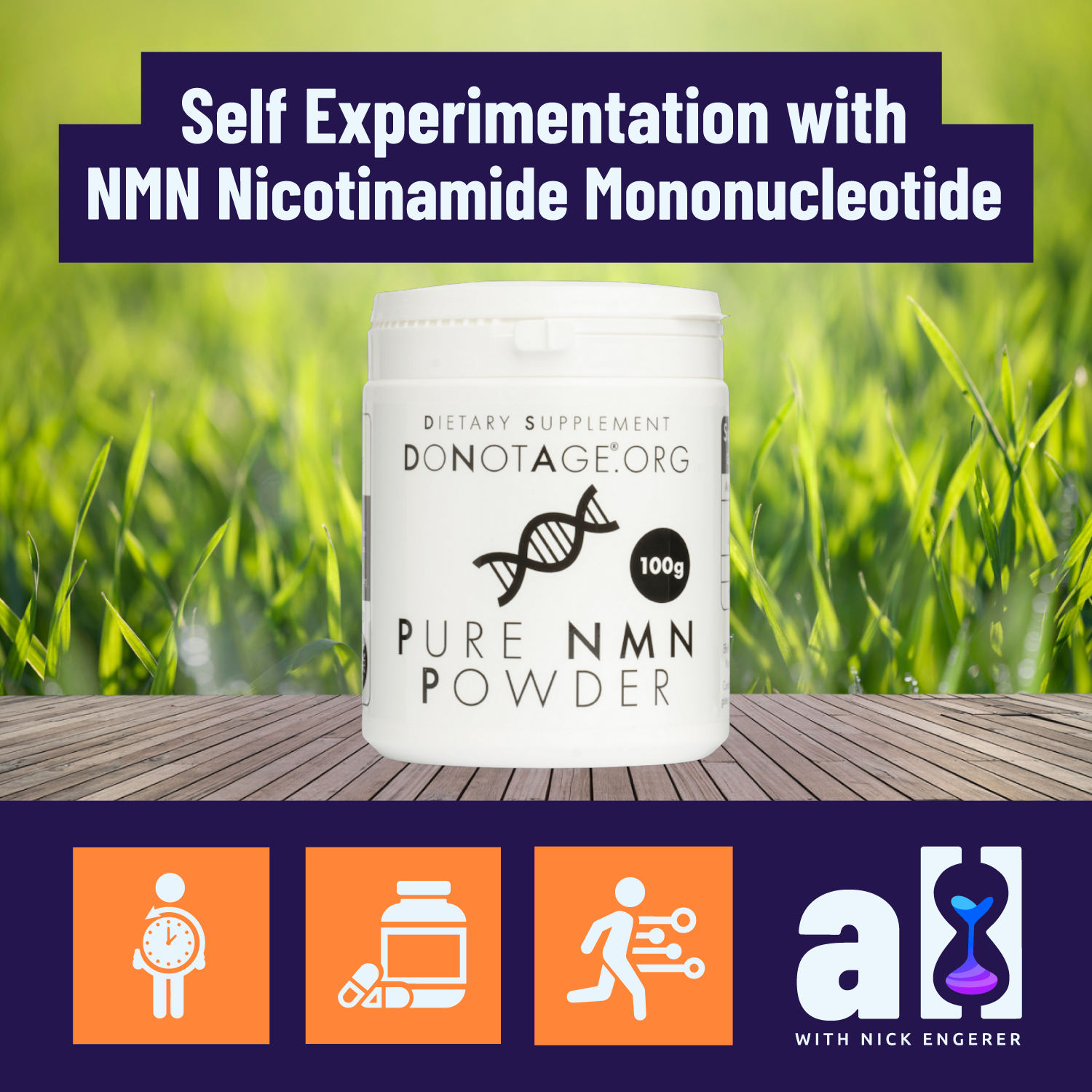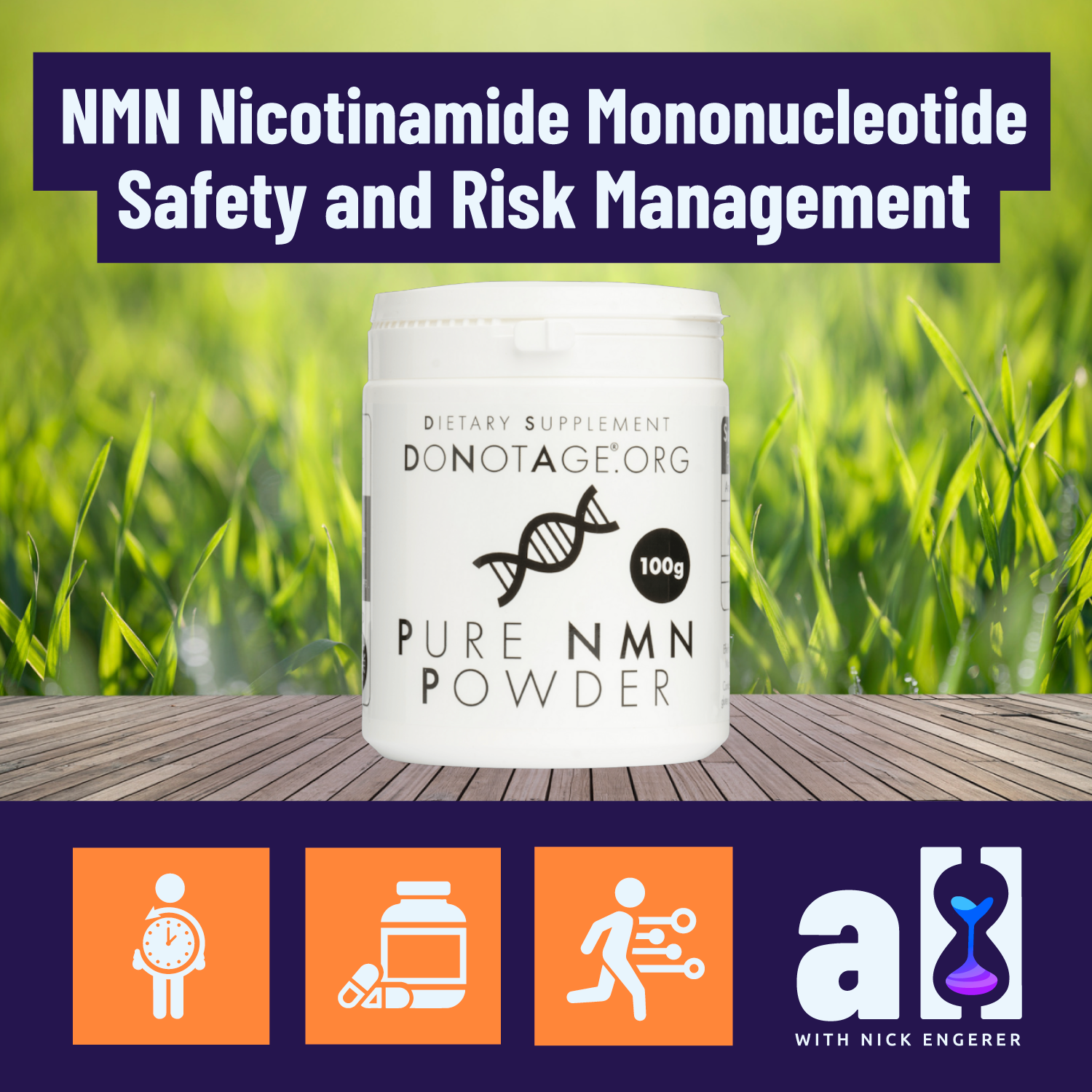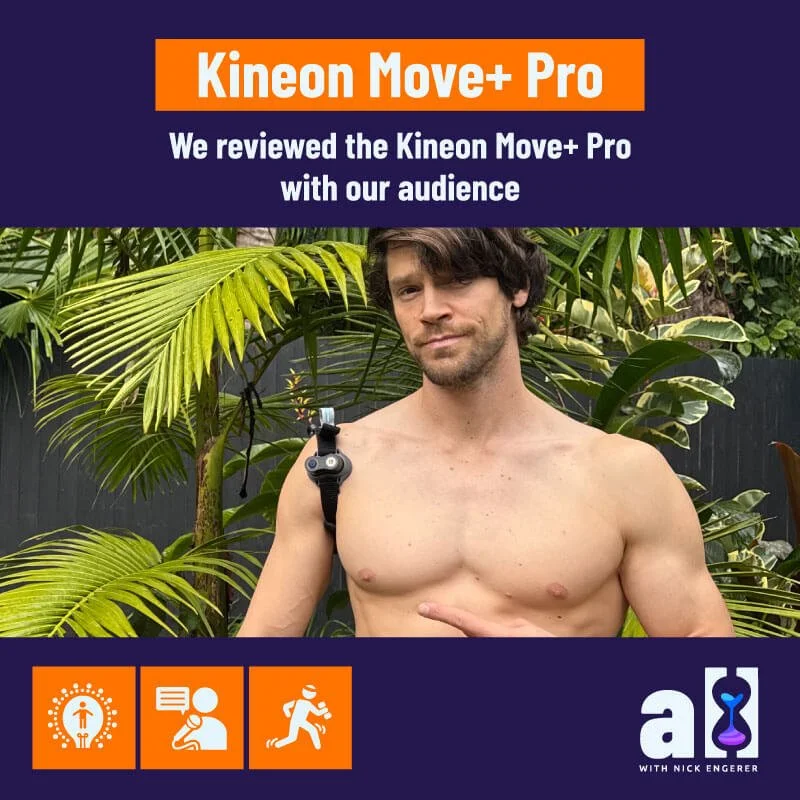Longevity: Fasting, diet, sleep, stress - How to personalise your approach
Longevity: Fasting, diet, sleep and stress
Understanding how to positively influence your longevity is complicated and at times overwhelming!
Demystifying longevity and simplifying the steps you can take to make improvements to your healthspan (and someday soon, perhaps lifespan) is what A Longer Life is all about!
Today, we hit upon three major topics in longevity - fasting, diet, sleep & stress in our with Dr Robert Lufkin, MD of Health Longevity Secrets.
How to fast for longevity
Fasting is one of the more recent major health trends. And like many health fads, it comes in hot and with plenty of miracle claims on how it cures all forms of ailments.
Nick and Dr. Robert Lufkin MD dig into the ‘secrets’ of longevity. You can find the full video here.
Analysing the benefits of fasting for your longevity and how you might approach fasting for longevity purposes is a challenging topic area with no ‘straight answer’.
Calorie restriction and longevity
Here’s what we know. Calorie restriction (eating slightly fewer calories than your body requires) over a lifetime improves healthspan and lifespan in many animal models, including rodents and even primates (who are closely related to humans).
However, there are no longitudinal studies on fasting which can demonstrate this is the case in humans.
Long-term strict calorie restriction has its advocates in the longevity health space. And quite a spritely bunch they are!
But to date, they are placing their bets on a very challenging type of fasting, which when done inappropriately can actually lead to early death (the opposite of what you want!) in some cases, and which has little to no robust scientific data specific to human longevity or lifespan.
Weight management and longevity
We love the fasting app Zero! It’s a great way to track your fasts and join a community of others looking out for their best health interests. Plus its totally free!
One thing that we do know for certain, is that eating too many calories (more than your activity level requires) over a long period of time is associated with many chronic health conditions.
Why? Because it leads to being overweight, even obese, and increases systemic inflammation.
It even increases your biological age.
If you want to improve your health outcomes, you should maintain a healthy weight.
Through the lens of longevity, this makes fasting is a valuable tool. One that can you can use to reduce your weight to a more optimal level & reduce age-related disease risk.
For some insights on the types of fasting you can use to accomplish this, checkout Nick’s discussion with Dr. Lufkin at ~33:40 (or the transcript below) in our YouTube interview!
Does sleep increase lifespan? How many years does lack of sleep take off your life?
Getting quality sleep is essential for your health and longevity. How much does sleep affect your healthspan? Well that depends!
It is well established that getting too little quality sleep is very bad for your health, while getting enough quality sleep helps your body heal/recover more effectively.
From a first principles standpoint - we can predict that getting enough quality sleep is certainly very important for your longevity.
How much sleep do you need?
However, the details behind this statement are difficult to pin down. Your personal needs cannot be explained to you in a generalised blog post.
You have to take this matter very much into your own hands, and become an expert in understanding how you sleep best.
Getting ‘enough good sleep’ breaks down into three major components:
Sleep duration (how much you are sleeping)
Sleep quality (how well you are sleeping)
Sleep schedule (how regular your bedtime/waking time are).
Improve your sleep by tracking sleep duration (how much you are sleeping), sleep quality (resting heart-rate, movement) and sleep schedule.
Once you have a baseline (4-6 weeks of data), start experimenting to see what can improve your numbers in these three categories.
How much sleep (duration) you need is very much an individual statistic. And your personal sleep requirements will change according to the demands of your day.
For example, athletes tend to need more sleep so their bodies can recover from their training. If they were to discontinue their intense training, they would need less sleep overall.
Meanwhile, shift workers who have irregular sleep schedules (e.g. nightshift work a few days/week) are known to have much higher age-related disease risks (e.g. cancer, cardiovascular disease).
How to measure and improve your sleep
Sleep quality has recently become more measurable, which allows you to monitor it over time and get a baseline for what ‘normal sleep’ looks like for you.
Jump ahead in our video interview to ~39:50 (or the transcript below) to hear from our Founder Nick on some tricks for using everyday wearables to establish your sleep quality and how to analyse what helps you sleep better (or worse!).
How does stress affect longevity / life expectancy?
We hear a lot about how damaging stress is to our health and longevity. So much so, it might even be stressing you out!
“Stress” however, is far too generic a term. For example, stress can be good, so long as it does not overwhelm the biological system. Nature has developed robust responses to stress to recover and then become more resilient against a specific stress.
You can self-experiment with stress, just by observing your emotions, feelings & thoughts. To do so, try mindfulness meditation to practice observing your mental state.
Once you build some basic skills, you’ll be able to better notice how the events of your day impact your mental health.
We’ll be bringing you some examples on how to track stress/anxiety and run a self-experiment in future posts.
What you should concern yourself more with is being able to 1) observe your mental health state and 2) identify what triggers poor mental health for you. From there, you experiment with positive changes to your lifestyle, supplement stack and mental adaptation strategies.
Starting with observing your mental health status, our Founder Nick recommends using mindfulness meditation.
Learning to sit with your thoughts, emotions and feelings creates an ability to observe them. Without practicing this, you’ll lack the all important skillset required to know what is stressing you out.
By building an ability to understand and observe your mental health state, you then become enabled do something about what brings on poor mental health and do something about it.
Using a mindful mind, you’ll be able to the self-reflection and self-observation required to become aware of what specific life events are causing you to feel stressed.
Nick is currently running a self-experiment to improve his anxiety levels, as informed by his personalised genetics report from Self-Decode.
From there, you can develop strategies specific to these triggers.
We’re in the progress of using Nick’s personal results from Self-Decode to explore our personalised stress and anxiety supplement recommendations from their platform, to demonstrate how you can do this effectively!
Tune into the YouTube interview to hear more from Nick on this topic, at ~43:40 (or read the transcript below!).
This is part two of our transcription of an October 2020 interview between Dr. Lufkin and our Founder Nick at A Longer Life.
It is in excerpt format, to highlight key points of the discussion with basic edits made for purposes of clarity and correctness. Timestamps are approximate.
Is fasting good for longevity?
Robert Lufkin (RL) at 33:40
What about diet? Fasting, we hear so much stuff about that, and longevity, what's your what's your take on on that as as far as influencing longevity?
A Longer Life (ALL) at 34:02
Look, this is this is a fascinating discussion. And once again, when we start talking about diet, we start talking about fasting. We're really getting onto this question of what will work for you and you need to be able to measure before and after…
Fasting refers to many different types of restricting your diet, it might be calorie restriction, eating a fewer number of calories overall, it might be dietary restriction, removing a certain part of your diet. For example, keto diet, the ketogenic diet, it's an extreme example.
It might also be something where you change the times that you're eating, you might only eat in the evening, you might only for a few hours a day or maybe an eight hour window.
And then there's of course the true fast where you go for a few days at a time, with just some water and electrolytes, maybe a multivitamin
I've experimented with all of them. And so I've had to go through that self-experiment and learn for myself what works best for my biology, and do that through testing my bloods, looking at how I feel, what are my energy levels, what is my skin look like?
What type of fasting is right for your longevity?
… Coming back to the point, somebody who is extremely overweight, maybe morbidly obese, and really needs to lose some weight - fasting is a powerful tool for that person, they should absolutely consider it … they might be able to go for extended periods of time and not eat and lose incredible amounts of weight
There might be just the average person who needs to lose 20 pounds, and they so they decide they're going to skip breakfast, eat in a smaller window, and make sure they're not overcompensating for missing breakfast by eating more calories at lunch and dinner.
 |
Why nick doesn’t (currently) fast
… I mentioned earlier that I'm now a triathlete. So I wake up and eat and then I eat again and then I eat again, and then I eat again. And it's because I'm working out two times a day, to adapt my body to be more of an athletic one. I'm convinced that over a decadal timescale, the most important thing that my biology can have is better mitochondria, stronger muscles and adapted body with great angiogenesis and fresh blood vessels, circulating nutrients and clearing waste throughout my body.
There's all these benefits that I cite for why I'm doing this. Now, that means I'm not necessarily getting the benefits of restricting my calories, which we know does provide longevity benefits. Calorie restriction is one of the most powerful tools for actually improving lifespan outcome in primates. And we think that that applies to humans.
But that's not the only knob you can turn to improve your longevity. There's several - so you have to try to pick a longevity strategy and implement what you think's going to work best for you and your biology over the long-term, and put your cards on the table after you place your bets.
I'm going down the exercise route, I'll probably eat less as I get older overall, but now I'm finding that the eating small meals throughout the day is powering exercise, which is making my body stronger, my heart stronger, and leaving me feeling pretty fantastic.
RL at 38:11
What are the other knobs for longevity? We touched on exercise and diet. What other knobs can we turn there?
Using blood testing to choose a longevity diet
ALL at 38:25
When it comes down to thinking about your biological age there are four important things you can change, diet, exercise, stress and sleep.
We've just talked a bit about diet (fasting) - let me give a further example on how it can be personalised.
Nick’s blood lipids over time, with 3x different diets highlighted.
When I did the ketogenic diet for a year, my cholesterol levels were out of whack. My LDL-C was too high. My particle count for the lipoproteins was too high.
I looked at that data and said - “Look ketogenic diets, not the right thing for me”.
Instead I've come around to eating low amounts of saturated fat, pretty much eliminating dairy, and still eating red meats, fish, chickened balancing that out with eating a lot more plants
That diet has improved my inflammation levels and reduced my LDL-C and my ApoB number (representing the lipoprotein particles counts and their sizes). So that diet is a healthier thing for me.
Improving Glycanage by 6 years!
On 19/03/2021 Nick’s GlycanAge was 30. His latest GlycanAge is 24
But that's not necessarily the thing that will be right for everyone. So you have to back that up with blood testing, how you feel and your overall goals.
Sleep and longevity - What A Longer Life is tracking
Let’s talk about sleep next. And also, you've done some great experiments on NMN and some other things. If you want to talk about those that that would be interesting as well.
ALL at 40:50
Okay, let me tell you what I think about sleep. Sleep is again, highly personalised, like all this stuff is. Some people will hit the hit the hay and just knock right out and sleep through the night. Good on them. I wish I was one of them. I'm not.
In fact, through analysing my own genome, I am in the the 98th percentile for insomnia! So I'm a bit of a thrasher!
I have to really think about my sleep and get on my A game. I've just pretty much eliminated alcohol altogether in my life. But more importantly, if I'm going to have a drink, it's going to be a day drink.
If I have a single beer or wine for dinner, I can already see resting heart rate increases my heart rate variability drops, and as a result I don't sleep as well for the first part of the night till my body clears that out of its system.
Same thing for eating meal too large of a meal late at night, I'll see elevated heart rate for a few hours before it finally comes down.
That increased heart-rate is reducing the amount of recovery that I get from my sleep.
It's fairly in vogue to do sleep tracking, I get a lot of data from the Oura ring. It's has its limitations. I wouldn't say I trust its sleep stage data very much.
But what it does tell me is it tells me how much I'm moving around. It tells me what my heart rate is and measures my heart rate variability, my body temperature.
Just looking at those metrics alone makes it possible to collect data and infer outcomes.
What about sleep supplements? Do they work?
I've also then been able to self-experiment with sleep stack supplements.
For example, I was just trying out valerian root. I thought I felt like I was sleeping better, but when I went back and looked at my data, I couldn't see any evidence of that. So I did not add it to my stack.
I've experimented with other sleep related supplements like magnesium L threonate, or Magtein, but that turned my brain on too much. One of the only things I found that works for me was magnesium glycinate. I'll take around 300-400mg as that seems to relax me a bit.
How to interpret your sleep data for optimisation
… So for your own personalization, get a format for collecting data, the most important thing in my view, is being able to see movement and heart rate. Your heart rate should drop off fairly quickly and lower out into a nice plateau and then pick up when you wake up.
If you don't see that, if you see the heart rate staying up and you see it spiking throughout the night along with movement - these are signs that you're not sleeping as well as you could.
You can gather that information from a smartwatch. You can gather that stuff from a ring or a whoop band or any other mechanism you want. But being able to then take it and inform your personal longevity strategy is the most important part.
In my office rocking’ these blue light blocking glasses from DoNotAge. 10% off when you use the code ‘longevityblog’.
That means changing one thing at a time, collecting some data and deciding very objectively - did trying that thing improve my sleep yes or no? Do that over and over again until you know what works for you. That's how I would approach sleep.
One last thing - blue light blocking works for me in terms of sleep onset.
Particularly if you got a screen at night or you're in a bright environment. Light control is huge.
So I take all the blue light out of my environment I turn I got LEDs that light up my home and I turned them down to a warm tone and that turned them down to a red light as we're reading go to sleep in the house.
Controlling the lights is really, really important for sleep.
Stress and longevity
How about stress then? Same type of thing?
ALL at 45:05
Stress - we have a proclivity to it in modern society… I actually intentionally live out what we call in “the bush” in Australia - meaning I live in a rural area. Every time I go to the Big Smoke (Sydney), where my company is based and visit with my team, I'm amazed at just how many cars are trying to kill me, the noise that is in my ears, the pollution I'm breathing in, the light that's coming at me all times of the day…
Learning to understand that your body has having stress response to everyday activities… these things have impact on your subconscious and raise your stress level. Being able to notice what increases your stress level and what is causing you to have a stress response… is important to figure out in your in your own subjective awareness.
Meditation and longevity - Become aware of what is stressing you
The most powerful tool for being able to notice this is mindfulness meditation. I've done a lot of meditating in my life. I've done a lot of self reflection, and meditation retreats - all that good stuff. Meditation has become a powerful tool, much like fasting, that I know when I need to use, and has also given me a baseline awareness to be able to see in my own mind, what I'm experiencing, what I'm thinking, what I'm feeling.
That's what you need to do in order to understand stress, because until you can take that step back and observe the things that are making you feel stressed, you won't know what to eliminate.
Once you can see that, then you need to eliminate and control. I'm actually doing a self-experiment with some of my personal results from Self-Decode, exploring the stress and anxiety supplements that have been recommended to me by my genetic reports
Self-experimenting with these supplements is important because the same thing won't work for everyone. A great example - CBD oil makes me feel anxious. I feel good for the first hour and then I feel anxious for the three hours after that. That's not the experience that most people have.
Developing the skills to figure that out for yourself by self experimenting, adding one thing at a time, keeping a journal … That's the way to approach managing stress.
So first - mindfulness to gain perspective, and then (second) try taking things away or adding things in (supplements) to control that stress more effectively.
RL at 47:38
I'm hearing the theme of personalization and being aware of your own body and what works for each of us. It's such an important important message.
What about supplements,? You mentioned a couple like resveratrol or NMN. Anything there you recommend?
…
This interview continues, covering Nick’s multiple self-experiments and his role as an Advisor to DoNotAge.
If you’d like to hear more, you You can watch the rest of this video interview between Dr. Robert Lufkin, MD and our Founder Nick Engerer of A Longer Life here
 |
FDA & TGA DISCLAIMER
This information is intended for educational purposes only and is not meant to substitute for medical care or to prescribe treatment for any specific health condition. These blog posts are not intended to diagnose, treat, cure or prevent any disease, and only may become actionable through consultation with a medical professional.

